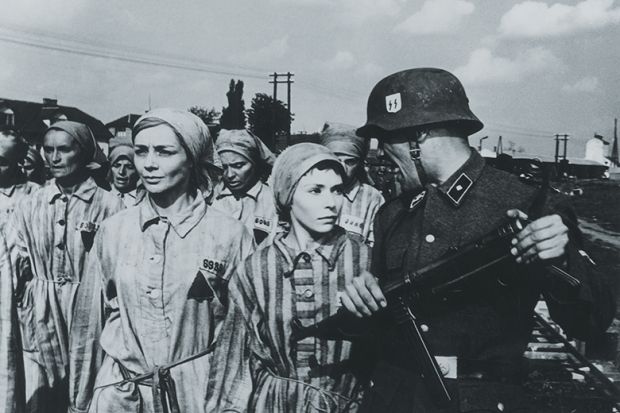It is one thing to recognise that some non-Jews collaborated with the Nazis during the Holocaust; it is quite another to reflect on those collaborators who were Jewish. Although the existence of “kapos” – Jewish concentration camp inmates with minor administrative duties – has been acknowledged, it is usually downplayed as either exceptional or as an example of Nazi efficiency and manipulation. That is, the Nazis co-opted Jewish prisoners, within the ghettos and later in the camps, because they believed it would make their job easier. Such prisoners had no choice but to comply, even if it meant beating their fellow inmates or subjecting them to torture.
In this revelatory and at times astonishing book, the historian Dan Porat analyses the hitherto inaccessible transcripts of 40 kapo trials that were held in Israel over the course of two decades: the first in 1950, only a few years after the end of the war, and the last in 1972. These trials, in which Holocaust survivors were judged for their wartime activities, received significant media coverage within Israel, and Porat demonstrates that members of the public cared immensely about the verdicts. Nearly two-thirds of those accused were sentenced to prison. And yet, 40 years later, only the 1961 trial of Adolf Eichmann, chief Nazi architect of the Final Solution, is ever discussed. Bitter Reckoning interrogates this cultural amnesia and asks why it is that Israel no longer calls to account the actions of Jewish functionaries within the camps. Porat specifically mentions Yad Vashem, the World Holocaust Remembrance Centre in Jerusalem, which “does not refer to the kapo trials even once in its 4,200-square-meter permanent exhibition”.
The extraordinary fact is that legislation regarding kapos in Israel has changed dramatically over the years, passing through four distinct phases. The first, perhaps the most interesting in the study, was from 1950 until 1952, when supposed collaborators were treated as equivalent to the Nazis. Porat recounts surprising anecdotes from this period, with survivors in Israel walking along the street and suddenly seeing their former Jewish supervisor. Overcome with fury and anguish, they would either attack or immediately report their oppressors to the police, who would respond swiftly and arrest the accused. During this initial phase, the notion that kapos were victims too was dismissed.
Over the years, legal terminology became more nuanced, distinguishing between kapos who followed Nazi orders under duress and those who wilfully mistreated their fellow inmates. Porat gives harrowing examples of the latter. The final phase, which notably began after the Eichmann trial, constituted a complete reversal of the first: all kapos were victims and we cannot judge them, we read, because we were not “there”, in the hellish and “morally upside-down world” of the camps.
The epilogue to this book reflects on the dangerous implications of this final, persistent stance: a Jewish state that remembers only its victims and not its perpetrators is in denial about its fallibility and, ultimately, its humanity. Recalling the words of Primo Levi, Porat concludes that the camps were not divided into good and evil; there was a “grey zone” that we are ethically obliged to confront, at whatever cost.
Giulia Miller is a visiting lecturer in literature and film at the University of Chester and the author of Studying Waltz with Bashir (2017) and Reconfiguring Surrealism in Modern Hebrew Literature (2013).
Bitter Reckoning: Israel Tries Holocaust Survivors as Nazi Collaborators
By Dan Porat
Harvard University Press, 288pp, £23.95
ISBN 9780674988149
Published 25 October 2019
Register to continue
Why register?
- Registration is free and only takes a moment
- Once registered, you can read 3 articles a month
- Sign up for our newsletter
Subscribe
Or subscribe for unlimited access to:
- Unlimited access to news, views, insights & reviews
- Digital editions
- Digital access to THE’s university and college rankings analysis
Already registered or a current subscriber?








